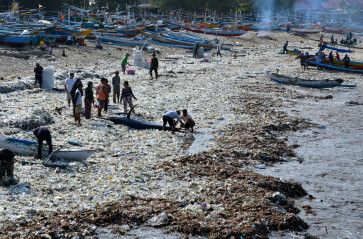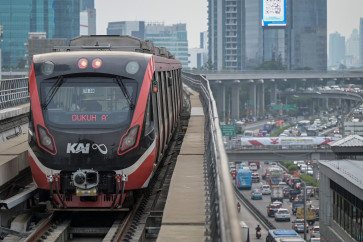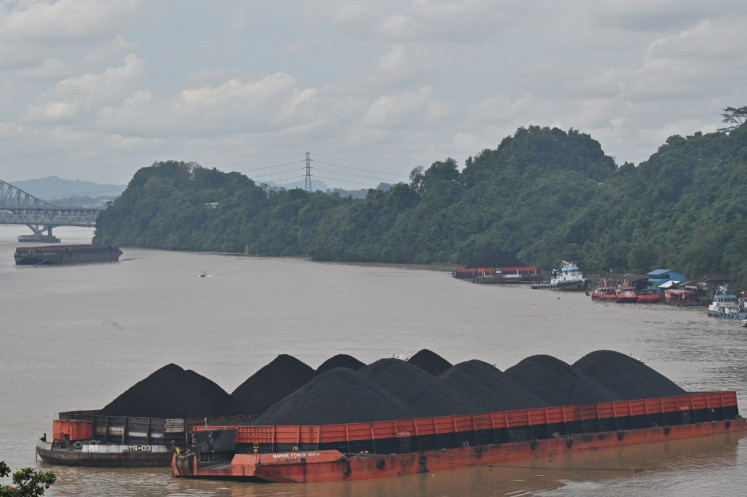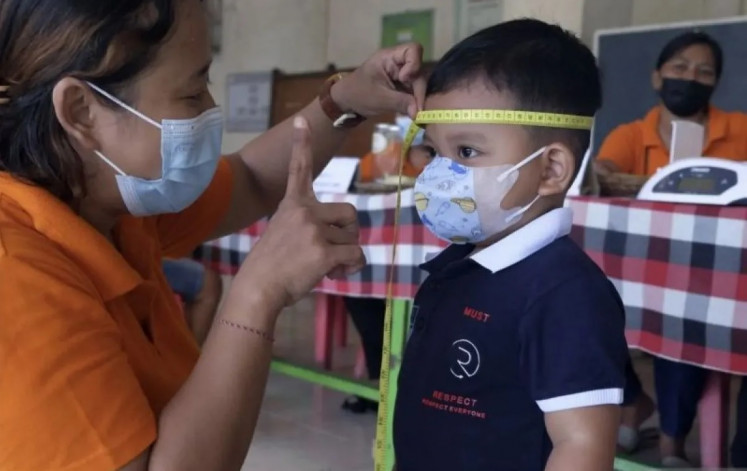The start of Middle-Eastern look east policy
The story of ASEANâs remarkable growth has reached the Middle East
Change text size
Gift Premium Articles
to Anyone

T
he story of ASEAN's remarkable growth has reached the Middle East.
During a meeting of the ASEAN Committee in Doha (ACD) with the Qatari Prime Minister and Interior Minister Sheikh Abdullah bin Nasser bin Khalifa Al Thani on July 22, the Qatari Foreign Ministry sprang a surprise by announcing the plan to establish a dedicated unit to fostering economic ties with Southeast Asia's regional grouping.
To start the realization of Qatar's plans, the Philippines' ambassador to Qatar said Qatari government officials had promised to visit ASEAN countries in the near future. Meanwhile, the initiative for a deeper engagement dated back to February 2013, when the Qatari ambassador to Indonesia and ASEAN, Muhammad Khater Ibrahim Al-Khater, exchanged views on expanding cooperation between ASEAN and Qatar in a meeting with the ASEAN Secretary-General Le Luong Minh at the ASEAN Secretariat in Jakarta.
Qatar is on the right track to build stronger engagement with ASEAN with regards to the bloc's quest for an economic community (AEC) by the end of 2015. With a current population of 600 million and being expected to become a US$10 trillion economy by 2030, dwarfing China's current economy of US$7.2 trillion, ASEAN is a promising land.
When Doha held the Inside Investor Asia Forum in October last year, the Qatar Investment Authority was looking at developing joint funds with some of the ASEAN countries to invest in each of them. Thailand recently agreed to import two million tons of liquefied natural gas (LNG) starting 2015 and will open the door for some broader investment in the Thai economy.
Qatar has so far dished out capital to the Malaysian financial services industry, Singapore's hospitality sector, farming projects in Thailand and Cambodia, tourism complexes in Myanmar and Laos and a planned mining project in the Philippines. Meanwhile, with Southeast Asia's largest economy, Indonesia, Qatar has set up a joint investment fund worth $1 billion with a focus on mineral resources and infrastructure projects.
Qatar's strong interest in Southeast Asia through its trade and investment should be followed by greater role in the political sector to contribute to regional peace, prosperity and stability. Qatar has undergone a remarkable transformation in order to emerge on the global scene as a heavyweight in contemporary peacemaking.
As we have seen, Qatar has played its role as a mediator in Lebanon, Yemen, Sudan and has undertaken similar lower-profile efforts in Palestine and in the border conflict between Djibouti and Eritrea.
Qatar's experiences could be shared with Southeast Asia to help the region address conflicts involving Muslim minorities, such as Islamic insurgencies in the southern Philippines and southern Thailand and the recent clash in Arakhan and Rakhine provinces in Myanmar.
Qatar can also contribute to greater cooperation between two regional groupings, ASEAN and the Gulf Cooperation Council (GCC). Qatari foreign policy could lead the GCC into a deeper partnership with ASEAN.
Other fields of cooperation that the two regional groupings can explore are the possibility of developing a trade and investment framework agreement and enhancing the prospects of future cooperation in the fields of labor as well as enhanced consular cooperation, since there are lots of Indonesian, Filipino and Malaysian migrant workers employed in GCC countries.
Such cooperation between the two secretariats is also worth exploring, which will allow them to share best practice, knowledge and exchange information.
The realization of cooperation can start with GCC countries assigning their respective ambassadors to ASEAN. As of today, only Saudi Arabia and Qatar have accredited their respective ambassadors to ASEAN.
Kudos should go to the ACD, which comprises Brunei Darussalam, Indonesia, Malaysia, the Philippines, Singapore, Thailand and Vietnam.
It is now being chaired by Vietnamese ambassador to Qatar Le Hong Phan. Their collective effort to enhance external parties to have a deeper engagement with ASEAN is enviable. Other ASEAN committees exploring potential cooperation with other Middle-East countries such as the United Arab Emirates, Kuwait, Oman and Bahrain, should follow the fruitful steps taken by the Doha ACD.
The writer works as an ASEAN research analyst at the British Embassy Jakarta. Previously he worked at the ASEAN Secretariat and the House of Representatives.









